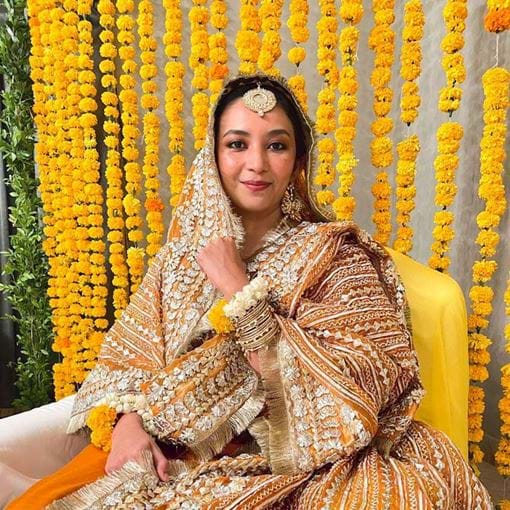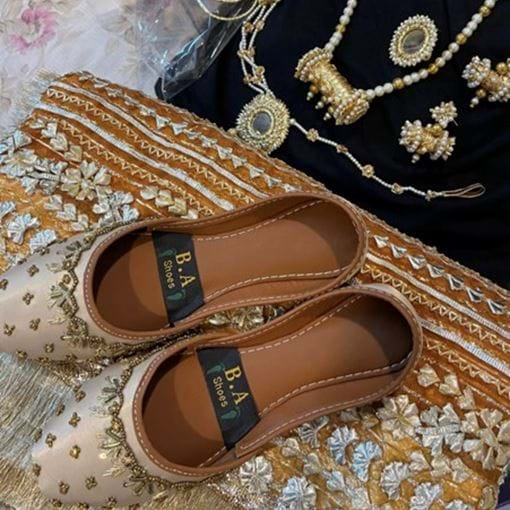Supporting local artisans: changing lives
Through my job leading the British Asian Trust’s Livelihoods programme in Pakistan, I have had the immense pleasure of travelling across the country and meeting women with incredible talent that our projects support. After every meeting, I go home with a big dose of inspiration, a great of sense of pride and some of their beautiful products purchased – most become a permanent fixture in my wardrobe and some prominently displayed in my house.
Little did I know our stories were about to be woven together even more! As part of our Foreign, Commonwealth & Development Office (FCDO) supported Driving Women’s Economic Empowerment (DWEE) project I visited our local partner Kaarvan Crafts Foundation’s exhibition in Lahore a few months ago. I met 50 of the talented women entrepreneurs taking part in our DWEE project, who specialise in different types of embroidery. The breadth of their collection, the impeccable craftsmanship and their creativity sparked a light bulb moment in me. Deep in my wedding preparations at this point, I thought it to be the perfect opportunity to show my friends and family the talented entrepreneurs we work with, and also perhaps open a new market for them. I’d always wanted a traditional gota dress for my wedding. Creating gota pieces is truly a labour of love. The fabric is stenciled with the design and strips of gold or silver ribbon is meticulously folded and hand-embroidered, creating beautiful patterns that add surface texture to the cloth. I took a leap of faith with my wedding dress, and that’s how Saima became my wedding dressmaker!

Saima is a part of the cohort of women entrepreneurs we support in Multan. She is extremely talented and specialises in gota work embroidery. Through this process I also got to witness firsthand the real impact our DWEE project makes to the lives of these entrepreneurs. Thanks to her training, Saima had honed the skill of customer relations to perfection. My brief to Saima was simple- I told her to make the most beautiful yellow dupatta she has ever made and gave her full creative independence, also giving me a chance to challenge how well she was keeping up with market trends which the training had prepared her for. Understanding the emotional importance of this project and dress for me, Saima kept me updated every stitch of the way!
A couple of months later, two big meticulously packed (and branded – she learnt branding is important in a business!) boxes arrived. Saima had not only made a stunning dupatta, she also sent me a full set of gota jewelry and a pair of khussas to complete the outfit. The piece was an absolute work of art, and what struck me the most throughout our journey was Saima’s professionalism, attention to detail and her will to create a better life for herself and her family based on her skill. She was on the lookout for an opportunity to show off all she had learnt.
I proudly showed off the beautiful dress at my wedding and instantly reached the outcome I had hoped for - Saima got a few calls and orders from guests at my wedding who were in awe of her work. I was pleased to use my wedding as an opportunity shine light on artisans like Saima and connect them to potential customers, which is one of the most important aspects of our Livelihoods programme - market linkages and design interventions. This simple exercise showed us all the real importance of these two aspects and also bolstered Saima’s confidence – showing she is (newly DWEE trained and) ready to take on the world!

Saima is only one of the two thousand exceptional women we currently have in the programme, all working hard and now ready to take on the world.
By Nazia Bilal
Livelihoods Manager, British Asian Trust


